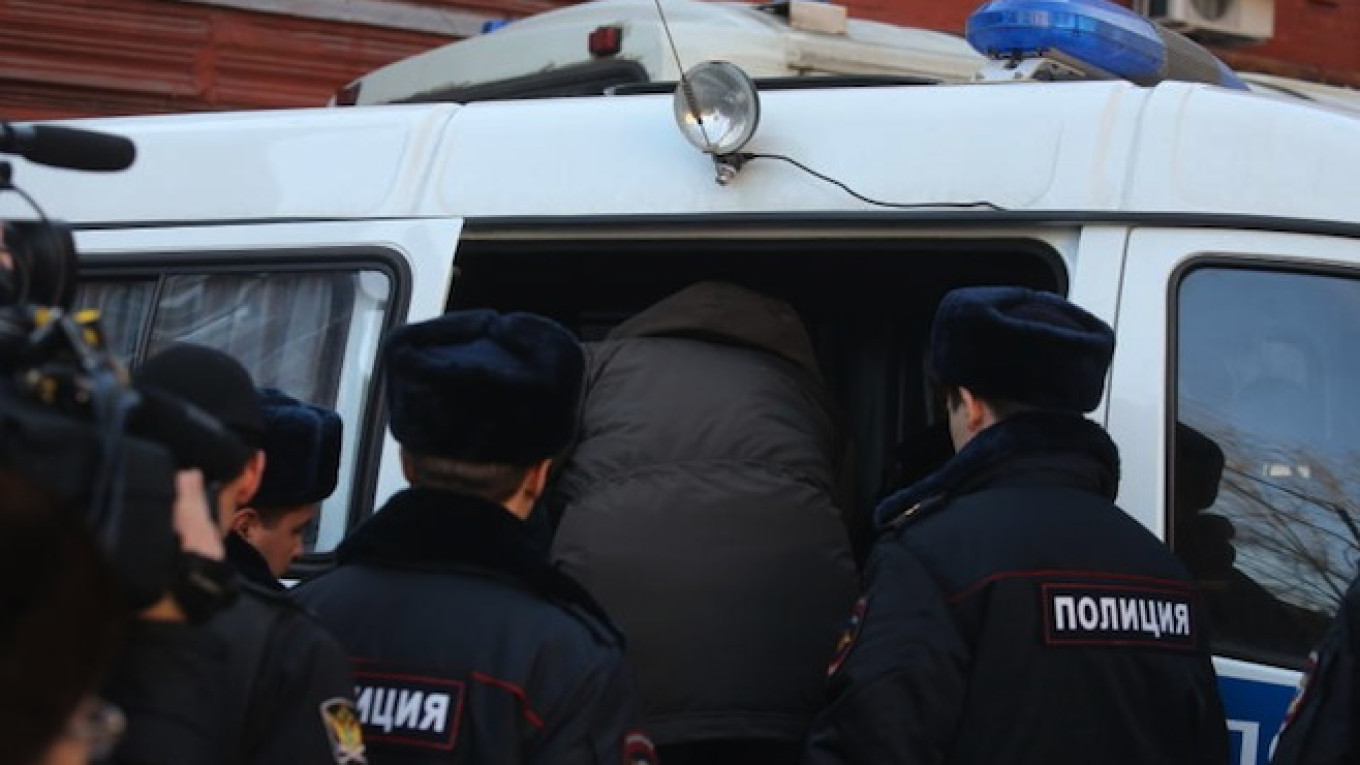Lawmakers from the ruling United Russia party have introduced a new version of the Administrative Code — the document that outlines sanctions for offenses that are not considered criminal, the Kommersant newspaper reported Monday.
The new expanded version of the code stipulates harsher punishments, the report said. It has not yet been submitted to the State Duma, the lower house of parliament, because it needs to undergo public discussions.
The current Administrative Code was adopted in 2002, and since then it has been amended more than 300 times, more than the number of amendments to the Criminal Code adopted in 1996, Kommersant reported. The new version is aimed at systematizing the changes.
The new version divides all offenses into three categories, as the Criminal Code does: minor, mid-level and serious crimes, the report said.
Vladimir Pligin, head of the Duma's committee for constitution and state affairs and one of the authors of the new version of the code, told Kommersant that the goal was not to raise fines for offenses — but they have been raised significantly.
The biggest fines stipulated by the new code are 100,000 rubles ($1,592) for individuals, 400,000 rubles ($6,368) for self-employed individuals, 800,000 rubles ($12,737) for officials, and 60 million rubles ($955,278) for legal entities, Kommersant reported.
The fines outlined under the code's “political” articles were also increased in the new draft. For instance, the maximum fine for buying off voters was increased by 20 times to 10 million rubles ($159,213). The maximum fine for the illegal allocation of funds during elections was increased from 1 million ($15,921) rubles to 7 million rubles ($111,450), and the fine for disobeying police orders was increased from 500-1,000 rubles ($8-$16) to 10,000-15,000 rubles ($160-$240), Kommersant reported.
The new version also offers more options for sanctioning offenders, in addition to fines, the report said.
Depending on the crime and its severity, self-employed individuals and legal entities can be deprived of operating licenses or have their businesses liquidated, and individuals can be sentenced to community service, banned from public events or forbidden from using the services of air carriers.
Contact the author at [email protected]
A Message from The Moscow Times:
Dear readers,
We are facing unprecedented challenges. Russia's Prosecutor General's Office has designated The Moscow Times as an "undesirable" organization, criminalizing our work and putting our staff at risk of prosecution. This follows our earlier unjust labeling as a "foreign agent."
These actions are direct attempts to silence independent journalism in Russia. The authorities claim our work "discredits the decisions of the Russian leadership." We see things differently: we strive to provide accurate, unbiased reporting on Russia.
We, the journalists of The Moscow Times, refuse to be silenced. But to continue our work, we need your help.
Your support, no matter how small, makes a world of difference. If you can, please support us monthly starting from just $2. It's quick to set up, and every contribution makes a significant impact.
By supporting The Moscow Times, you're defending open, independent journalism in the face of repression. Thank you for standing with us.
Remind me later.


